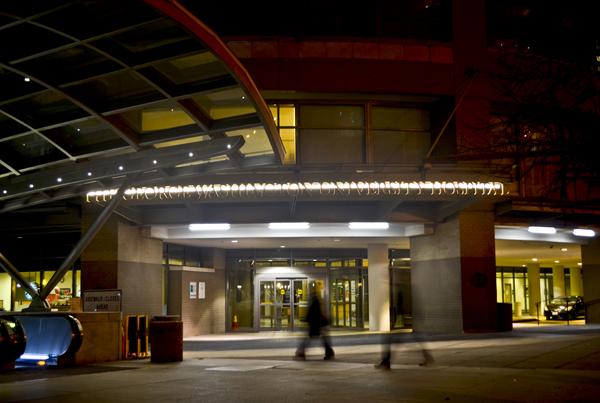University officials defended the decision not to send a campus-wide alert after a man allegedly attempted to sexually abuse two female students near the Foggy Bottom Metro station early Sunday morning.
The man reportedly threw one of the students to the ground and tried to take off her pants, the Washington Post reported. The student yelled, and bystanders ran to help her. A campus police officer arrested the man at about 3:20 a.m. after finding him in nearby bushes.
Minutes earlier, the man had pulled another student into the bushes and threatened to rape and kill her, the Post reported. She screamed and was able to run away. The Post reported that the two incidents were part of a string of sexual assaults and assault attempts in Foggy Bottom, Dupont Circle and Georgetown that day.
The suspect in the Foggy Bottom cases, 46-year-old Mustapha Kone, was charged with intent to commit sexual assault, simple assault, felony threats and kidnapping, the Post reported.
Students were not notified of the attacks because there was no danger to the community after the arrest, University spokeswoman Maralee Csellar said.
Senior Associate Vice President for Safety and Security Darrell Darnell said the alert system, which sends emails and text messages to students, faculty and staff, is in place to notify the University of an “ongoing threat to the safety of the GW community.”
“GW Alerts are not used to communicate every crime committed on or adjacent to campus,” he said.
Darnell declined to say whether the University would increase patrols in the area, explaining that “we prefer not to disclose the locations of our cameras and other security tactics — if we were to do so, it would give people who wish to commit a crime too much information.”
“We like redundancy when it comes to campus safety and have a number of security measures in place around our Foggy Bottom and Mount Vernon campuses, including cameras, blue light phones, officer bike and foot patrols, among others,” he said.
Under the federal Clery Act, colleges are required to notify the community when there is “an immediate threat to the health or safety of students or staff occurring on the campus.”
Schools often do not release alerts if a suspect was immediately arrested, out of fear that students will “tune out” future alerts, national campus safety advocate S. Daniel Carter said.
“Communication needs to be reserved for when there’s an ongoing threat,” he said.
In March, students took to social media to criticize the University for not sending enough alerts. Darnell said then that GW has released fewer alerts since he arrived on campus four years ago because “people were ignoring them.”
Carter said universities’ crime logs are available to the public to inform students of “non-ongoing threats,” and added that other kinds of communication, like a daily crime newsletter, can help increase police transparency.
“What we want to see is that when a timely warning or an emergency notification goes out to a college or university, the students or employees that get that alert know that they need to take immediate action to protect themselves,” he said.
The University reported 17 forcible sex offenses, like sexual assault, on campus in 2013, according to annual crime data released this month. The National Institute of Justice found that fewer than 5 percent of attempted and completed sexual assaults are reported to police nationwide.







